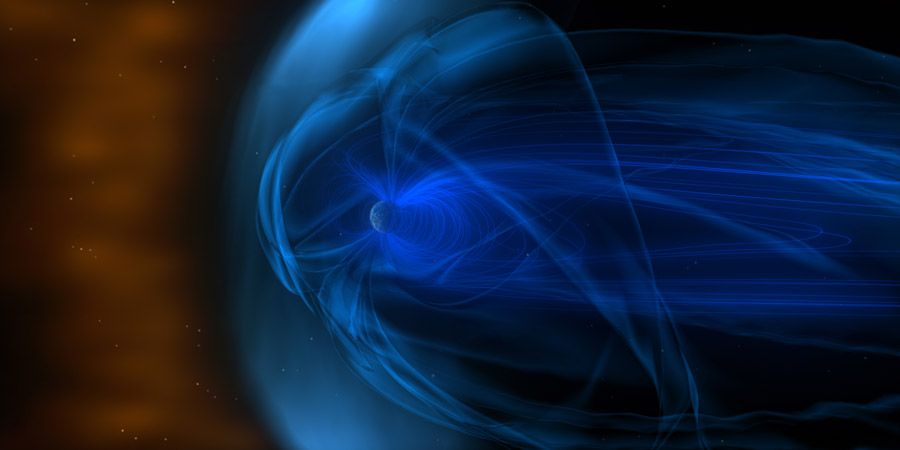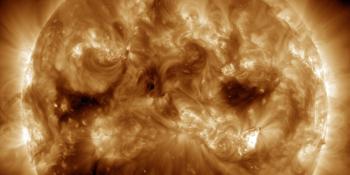X9.3 CME impact, Severe G4 storm
Friday, 8 September 2017 03:37 UTC

The X9.3 coronal mass ejection has arrived at Earth and boy does it pack a punch! While the M5.5 coronal mass ejection turned out to be a huge dissapointment, the X9.3 coronal mass ejection is much stronger than expected and we are seeing some of the strongest geomagnetic storming of the current solar cycle.
The plasma cloud was fashionably early actually, something we do not see so often. It passed DSCOVR already yesterday (7 september) at 22:29 UTC which is 7,5 hours earlier than our prediction and almost a full day earlier than NOAA's prediction.
The total interplanetary magnetic field strength (Bt) increased to 26nT at impact with a further increase slightly later peaking out at exactly 34nT at 22:58 UTC. The north-south component of the IMF (Bz) reached a maximum southward value of -32.9 nT at 22:57 UTC. Solar wind speeds increased from about 500 to almost 700km/s. Our automated coronal mass ejection impact system detected the shock wave as it passed DSCOVR and was of course on duty to report the event.
Moderate #CME impact - Speed 677.3km/sec - IMF Bt (strength): 26.94nT. - Follow live on https://t.co/T1Jkf6i4Cb pic.twitter.com/256h5ps7Cb
— SpaceWeatherLive (@_SpaceWeather_) September 7, 2017
These conditions quickly sparked a severe G4 geomagnetic storm which means middle latitude sky watchers have a real chance to see aurora!
Severe G4 geomagnetic storm (Kp8)
— SpaceWeatherLive (@_SpaceWeather_) September 8, 2017
Threshold Reached: 23:50 UTC
Follow live on https://t.co/Zkq26B89Y7 pic.twitter.com/cVKsisPwsM
Thank you for reading this article! Did you have any trouble with the technical terms used in this article? Our help section is the place to be where you can find in-depth articles, a FAQ and a list with common abbreviations. Still puzzled? Just post on our forum where we will help you the best we can!
Latest news
Latest forum messages
Support SpaceWeatherLive.com!
A lot of people come to SpaceWeatherLive to follow the Sun's activity or if there is aurora to be seen, but with more traffic comes higher server costs. Consider a donation if you enjoy SpaceWeatherLive so we can keep the website online!

Space weather facts
| Last X-flare | 2025/03/28 | X1.1 |
| Last M-flare | 2025/04/01 | M2.5 |
| Last geomagnetic storm | 2025/03/27 | Kp5 (G1) |
| Spotless days | |
|---|---|
| Last spotless day | 2022/06/08 |
| Monthly mean Sunspot Number | |
|---|---|
| February 2025 | 154.6 +17.6 |
| April 2025 | 152.5 -2.1 |
| Last 30 days | 130.6 -15.9 |


